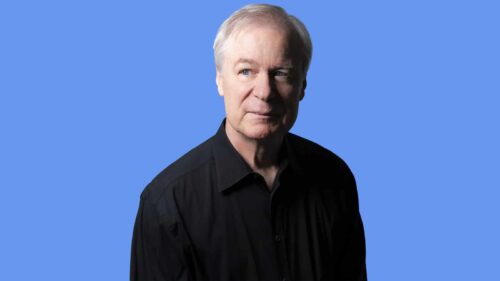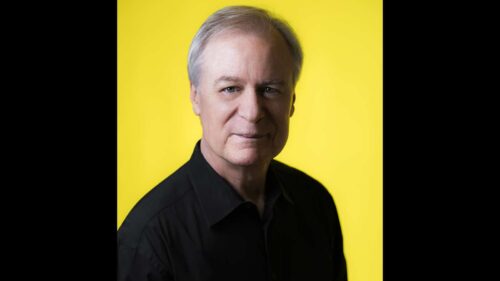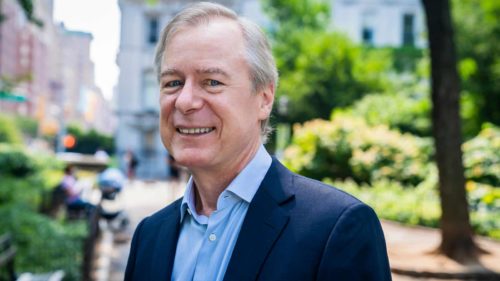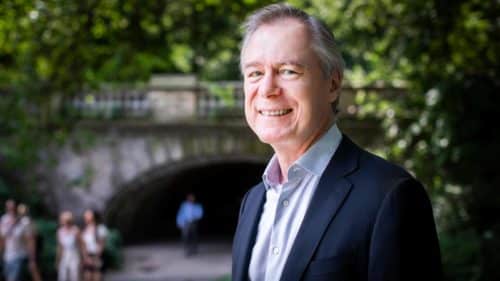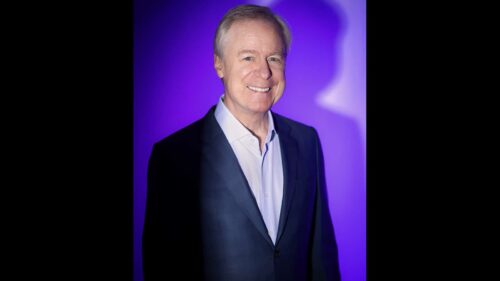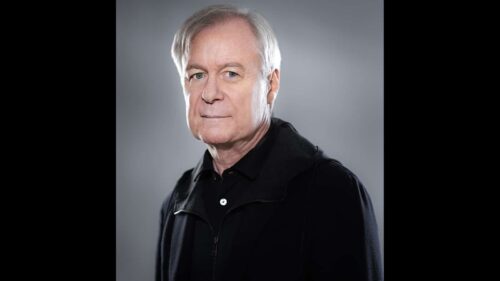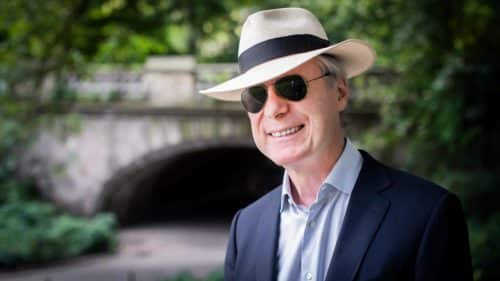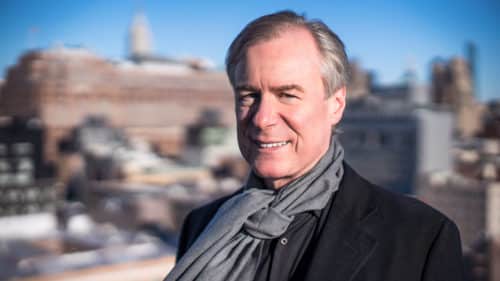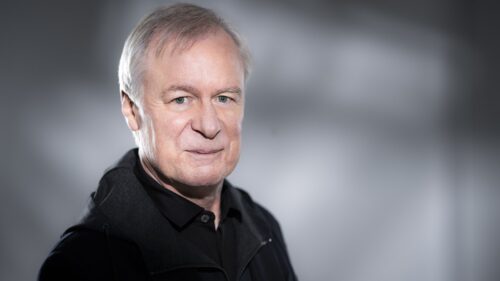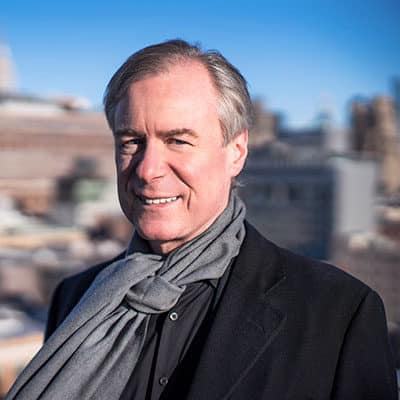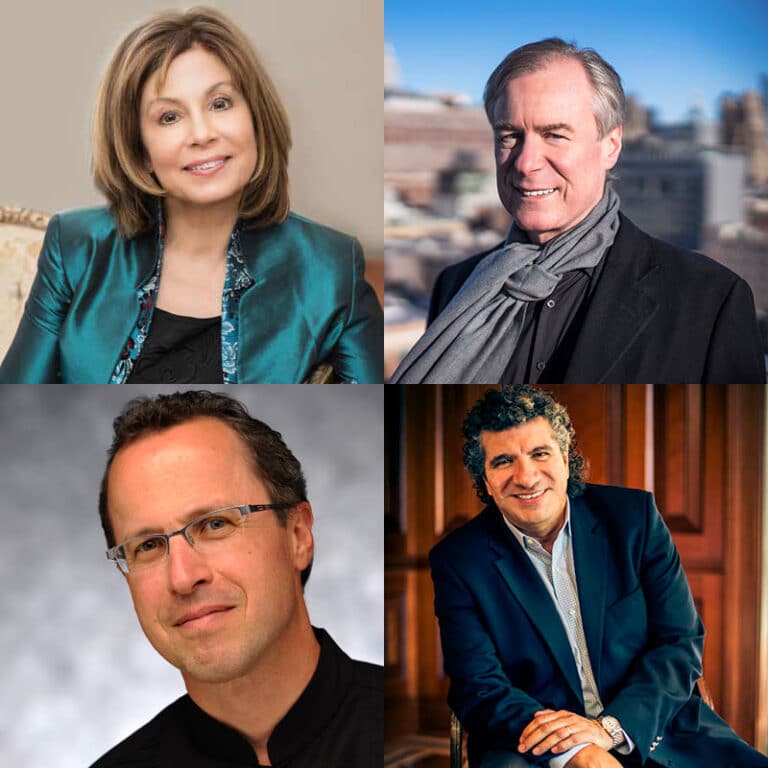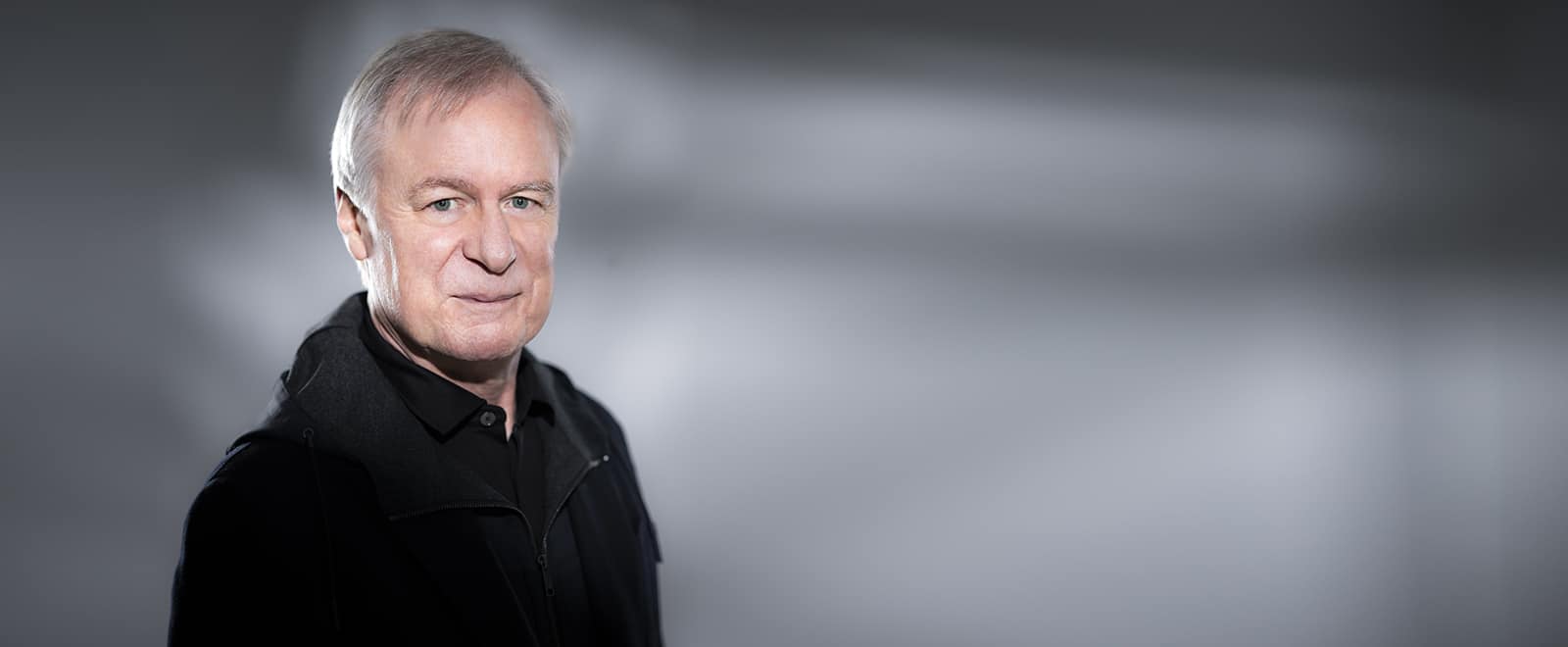
The New York Times (On David Robertson with the New York Philharmonic)STRIKINGLY FRESH
“The program ended with a strikingly fresh account of Sibelius’s popular Second Symphony. Mr. Robertson drew out the music’s misty colorings and hints of Finnish folk song, while emphasizing the visionary elements of this 1902 score, especially its structural daring, full of startling disruptions to the music’s flow.”
St. Louis Post-Dispatch (On Robertson’s 13 years as Music Director of the St. Louis Symphony Orchestra)A BRILLIANT POLYMATH
“Robertson is a brilliant polymath who can casually toss a connecting reference to a painting or a work of literature into a musical discussion. He’s got a great ear for talent, a gift for gab, a well-tuned sense of humor and a friendly way with audiences… Under Robertson’s leadership, the St. Louisans have been in the forefront of American orchestras.”
The Australian (On the World Premiere of Brett Dean’s Cello Concerto, and Brahms Symphony No. 4, with the Sydney Symphony Orchestra)FLAIR and PRECISION
“Conductor David Robertson and the orchestra realized Dean’s evocative accompaniments with flair and precision, smoothly shifting between foreground and background… He and the orchestra tore straight into the finale from the scherzo, and the impassioned urgency was almost overwhelming.”
The Wall Street Journal (On Così fan tutte, at The Metropolitan Opera)BUOYANT
“David Robertson’s conducting was buoyant (as in the clipped phrases of the chorus “Bella vita militar!”) and hauntingly transparent when necessary…”
The New Yorker (On Messiaen’s From the Canyons to the Stars…)FOCUS and FIRE
“David Robertson, the St. Louis’s music director, shaped ‘Canyons’ with a sure hand. He quelled any suspicion that the work is indulgent or rambling; at the same time, he respected Messiaen’s meditativeness, his silences. The orchestra responded with playing of focus and fire.”
The New York TimesTRANSPARENT and RIVETING
“That David Robertson conducted the St. Louis Symphony Orchestra at Carnegie Hall on Saturday night in the most transparent and riveting account of Sibelius’s elusive Fifth Symphony in memory would have been momentous enough…. As they applauded the boss after the Gruber piece, the musicians seemed impressed with Mr. Robertson’s daring and versatility. How many conductors could gleefully sing the crazed words ‘Frankenstein is dancing with the test-tube lady’ and then 24 hours later lead a serenely confident account of Wagner’s most spiritual music?”
David Robertson – conductor, composer, artist, thinker, and American musical visionary – occupies some of the most prominent platforms on the international music scene. A highly sought-after podium figure in the worlds of opera, orchestral music, and new music, Robertson is celebrated worldwide as a champion of contemporary composers, an ingenious and adventurous programmer, and a masterful communicator whose passionate advocacy for the art form is widely recognized. A consummate and deeply collaborative musician, Robertson is hailed for his intensely committed music making.
In the 2025-26 season, David Robertson deepens his commitment to inspiring the world’s greatest orchestras and the next generation of musical artists. He will return to conduct the St. Louis Symphony Orchestra for the first time since the culmination of his tenure as music director. In St. Louis’s newly renovated Powell Hall (March 6-7, 2026), he will lead Leonard Bernstein’s Symphony No. 2, “The Age of Anxiety”; the first SLSO performances of Sarah Kirkland Snider’s Something for the Dark and his own composition Light forming – a piano concerto with Orli Shaham; and Steven Mackey’s Turn the Key. Robertson will make his second post-chief conductorship visit to the Sydney Symphony Orchestra, (Sydney Opera House, July 3-5, 2026), leading the SSO in performances of Nielsen’s Symphony No. 4, “The Inextinguishable”, and the Beethoven Violin Concerto with Gil Shaham. 2025-26 is David Robertson’s eighth academic year as Director of Conducting Studies, Distinguished Visiting Faculty of The Juilliard School in New York, as he continues his role as a member of the Tianjin Juilliard Advisory Council, an international body created to guide Juilliard’s Chinese campus. He conducts the Juilliard Orchestra at Carnegie Hall on February 11, 2026.
David Robertson will return to the New York Philharmonic (November 13-16) to lead the world premiere of Caroline Mallonee’s Lakeside Game, co-commissioned as part of the orchestra’s Project 19; Wynton Marsalis’s Violin Concerto with Nicola Benedetti; and Stravinsky’s Petrushka (1911). Robertson conducts a number of other North American orchestras throughout the season, including the Dallas Symphony Orchestra (September 12-14) with Emanuel Ax, Nashville Symphony (September 19-21) with Orli Shaham performing Robertson’s Light forming, the National Symphony in Washington, DC (February 26-28) with Orli Shaham and Gil Shaham performing the world premiere of Reena Esmail’s Double Concerto (to be reprised at the Aspen Music Festival and School), and the Vancouver Symphony (January 30-31) performing works by John Adams and Nielsen and Alex Robertson’s Modum. He will conclude his three-year tenure as Creative Partner of the Utah Symphony with three visits in October, February and May, with a wide range of music and guest artists.
In Europe, Robertson returns to the Leipzig Gewandhausorchester (October 16-19) with Kirill Gerstein performing Stravinsky’s Concerto for Piano and Winds and Ravel’s Concerto for the Left Hand with works by Arvo Pärt and Bernstein. With the Budapest Festival Orchestra and guest artist harpist Xavier de Maistre, he conducts works by Ligeti, Ginastera and Nielsen (December 2-6), and works by John Adams and Bartók with the HR-Sinfonieorchester at the Alte Oper Frankfurt with pianists Lucas and Arthur Jussen (December 12). Robertson returns to the Czech Philharmonic (June 12-13) with works by Smetana, Beethoven and Stravinsky, and pianist Seong-Jin Cho. In Asia, in March and April, David Robertson will return to the Hong Kong Philharmonic making his debut at the Hong Kong Arts Festival, Tongyeong International Music Festival in Korea, and to Kaohsiung for the Taiwan Festival.
Robertson appears with many major ensembles and festivals on five continents, including: the New York Philharmonic, The Philadelphia Orchestra, Los Angeles Philharmonic, Boston Symphony Orchestra, Chicago Symphony Orchestra, The Cleveland Orchestra, San Francisco Symphony, Dallas Symphony Orchestra, Houston Symphony, Cincinnati Symphony Orchestra, Milwaukee Symphony Orchestra, Utah Symphony, Toronto Symphony Orchestra, Orchestre symphonique de Montréal, Royal Concertgebouw Orchestra, Czech Philharmonic, Berliner Philharmoniker, Leipzig Gewandhausorchester, Wiener Philharmoniker, NDR Elbphilharmonieorchester, Deutsches Symphonie-Orchester Berlin, the Symphonieorchester des Bayerischen Rundfunk, Staatskapelle Dresden, São Paulo State Symphony Orchestra, Sydney Symphony Orchestra, Seoul Philharmonic Orchestra, the New Japan Philharmonic, the China NCPA Orchestra, Taiwan National Symphony Orchestra; and at the Lucerne Festival, Berlin Festival, the Edinburgh Festival, the BBC Proms, Musica Viva Festival in Munich, the Aspen Music Festival and School, Music Academy of the West, Tongyeong International Music Festival, and Taiwan’s Kaohsiung Festival, among others.
David Robertson completed his transformative 13-year tenure as Music Director of the St. Louis Symphony Orchestra in 2018, where he solidified the orchestra’s status as one of the nation’s most enduring and innovative, and reinvigorated its American and European presence through regular touring programs. For the SLSO, he created dynamic relationships with a wide spectrum of artists, and garnered a 2014 Grammy Award, Best Orchestral Performance, for the Nonesuch release of John Adams’ City Noir. Among many other recordings, the historic Robertson-SLSO association, included the 2019 Blue Engine Records release of Wynton Marsalis’ Swing Symphony, with the Jazz at Lincoln Center Orchestra. 2019 was David Robertson’s valedictory season as Chief Conductor and Artistic Director of the Sydney Symphony Orchestra, the culmination of a six-year tenure leading the top orchestra of the Southern Hemisphere.
Building upon his prolific association with The Metropolitan Opera, Robertson conducted the encore performances in Fall 2021 of James Robinson’s lauded 2019 production of The Gershwins’ Porgy and Bess, which featured the returns of Eric Owens and Angel Blue in the lead roles. Robertson’s musical leadership of the 2019-20 season Porgy and Bess production premiere was honored at the 63rd Grammy Awards, in March 2021, as Best Opera Recording. Preceding this rich success, Robertson’s deep relationship with the Met Opera includes the premiere of Phelim McDermott’s celebrated 2018 production of Così fan tutte, set in 1950s Coney Island, and, since his Met debut in 1996 with The Makropulos Case, he has conducted a breathtaking range of Met projects, including the 2014 Met premiere of John Adams’ The Death of Klinghoffer; the 2016 revival of Janáček’s Jenůfa, then its first Met performances in nearly a decade; the premiere production of Nico Muhly’s Two Boys (2013); and many favorites, from Mozart’s Le Nozze di Figaro to Britten’s Billy Budd. Robertson conducts projects at the world’s most prestigious opera houses, including La Scala, Théâtre du Châtelet, Bayerische Staatsoper (orchestra), the San Francisco Opera, and the Santa Fe Opera. In January 2022, David Robertson made his debut with the Rome Opera conducting Janáček’s Káťa Kabanová to great critical acclaim.
In addition to Sydney and St. Louis, Robertson has served in artistic leadership positions at musical institutions including the Orchestre National de Lyon, and, as a protégé of Pierre Boulez, the Ensemble Intercontemporain, which he led on an extensive North American tour. At the BBC Symphony Orchestra, he served as Principal Guest Conductor. Robertson has served as a Perspectives Artist at Carnegie Hall, where he has conducted, among others, The Met Orchestra, Lucerne Festival Orchestra, St. Louis Symphony Orchestra, and The Juilliard Orchestra.
Robertson is the recipient of numerous musical and artistic awards, and in 2010 was made a Chevalier de l’Ordre des Arts et des Lettres by the Government of France. In addition to his Juilliard roles, he is devoted to supporting young musicians and has worked with students at the festivals of Aspen, Tanglewood, Lucerne, at the Paris Conservatoire, Music Academy of the West, and the National Orchestra Institute. In 2014, he led the Coast to Coast US tour of Carnegie Hall’s National Youth Orchestra of the USA.
Born in Santa Monica, California, David Robertson was educated at London’s Royal Academy of Music, where he studied horn and composition before turning to orchestral conducting. He is married to pianist Orli Shaham, and lives in New York.
SEPTEMBER 2025
